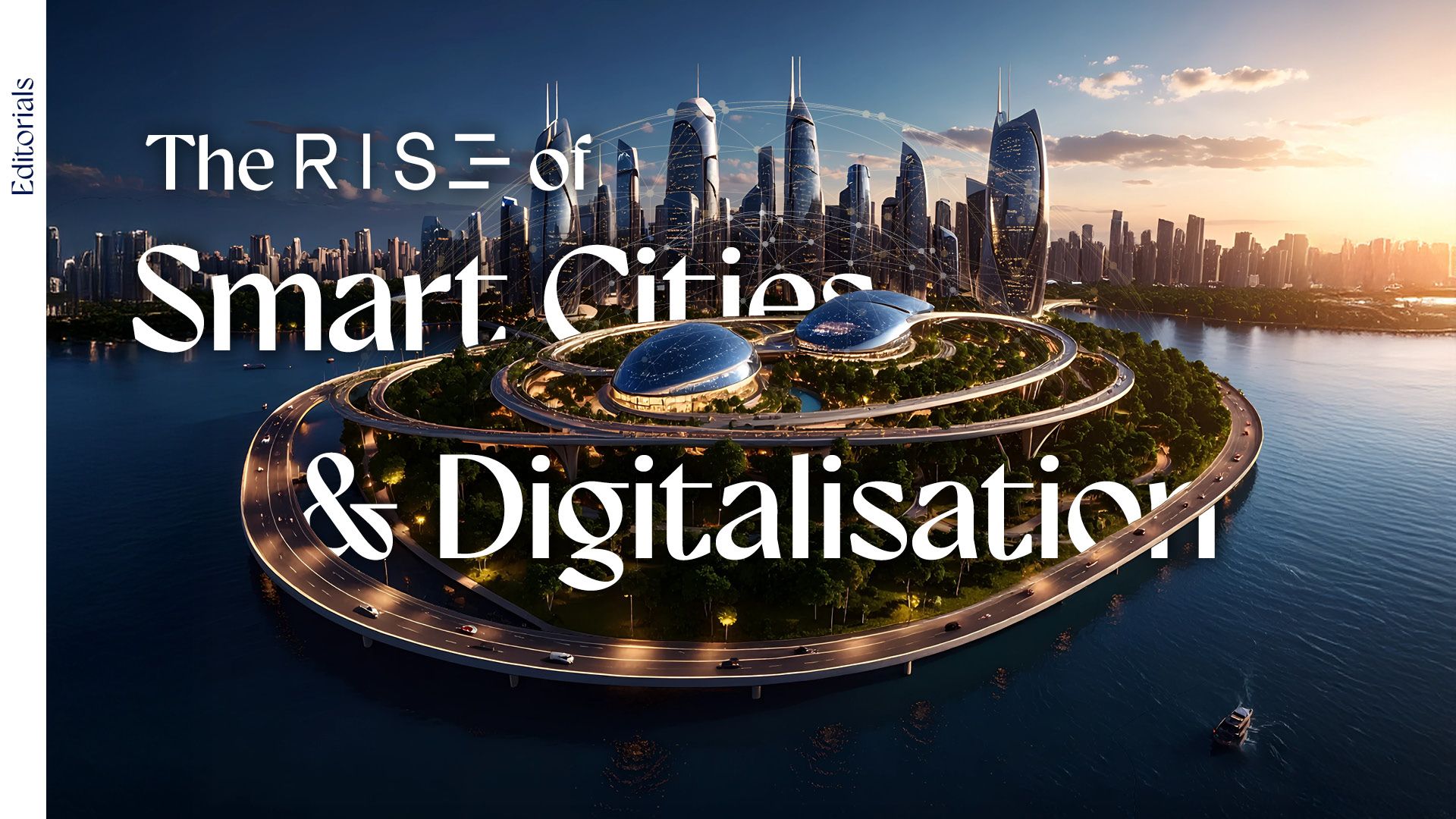The RISE of Smart Cities and Digitalisation in MENA

Reimagining How We Live in Urban Environments
Digitalisation in urban services and governance covers a variety of applications, all aimed at enhancing efficiency, sustainability and the quality of life for residents. These include:
- Smart Infrastructure: Intelligent transport systems, smart grids for energy management and connected utilities optimise resource allocation and reduce environmental impact.
- E-Governance: Digital platforms for citizen services, online licensing and transparent regulation enhance accessibility and accountability.
- Smart Mobility: Connected and autonomous vehicles, ride-sharing platforms and real-time traffic management systems improve urban mobility and reduce congestion.
- Data-Driven Decision Making: Leveraging data analytics from various sensors and systems to inform urban planning, resource allocation and policy development.
- Enhanced Security and Safety: Smart surveillance systems, predictive policing and rapid emergency response enabled by digital connectivity.
MENA’s Leading Smart City Developments
From Riyadh to Doha to Abu Dhabi, the MENA region is emerging as a global leader in smart city development, driven by strong government support, substantial sovereign wealth funds and a desire to diversify economies beyond oil. Several ambitious projects are under way, showcasing the region's commitment to leveraging digitalisation for urban transformation.
- NEOM (Saudi Arabia): Perhaps the most ambitious project globally, NEOM is envisioned as a futuristic cognitive city powered entirely by renewable energy. Its plans include next-gen transport options (like hyperloop), sustainable living and advanced manufacturing. For investors, NEOM represents a long-term, high-potential opportunity in a completely reimagined urban environment. The sheer scale and innovative nature of NEOM will create demand for specialised real estate, advanced infrastructure and supporting industries.
- The Line (NEOM, Saudi Arabia): A truly unique 170KM linear city concept within NEOM, The Line aims to redefine urban living with a focus on walkability and seamless integration of nature and technology. Its unique design and emphasis on sustainability present one-of-a-kind investment opportunities in residential, commercial and mixed-use developments.
- King Abdullah Economic City (KAEC) (Saudi Arabia): Already operational, KAEC is a large-scale, privately funded city with a focus on industry, logistics and tourism. It incorporates smart city elements in its infrastructure and services, offering investment opportunities in industrial land, residential and hospitality. Its established status provides a more immediate investment opportunity compared to greenfield projects.
- Masdar City (UAE): Located in Abu Dhabi, Masdar City is a pioneering sustainable urban development powered by renewable energy. While smaller in scale than NEOM, it serves as a living laboratory for clean tech and sustainable urban planning. Investors interested in green real estate and sustainable technologies will find opportunities within Masdar City's specialised ecosystem.
- Lusail City (Qatar): Situated near Doha, Lusail City is a master-planned urban development featuring smart infrastructure and a focus on sustainability. As Qatar continues to grow and diversify, Lusail City offers investment potential in residential, commercial and entertainment properties.
What Are the Implications for Real Estate Investors?
The rise of smart cities in the MENA region presents significant opportunities for real estate investors who are attuned to the transformative power of digitalisation.
- Increased Property Values: Properties within well-planned and technologically advanced smart cities are likely to command higher values due to enhanced amenities, security and quality of life.
- Demand for Smart Buildings: Investors should focus on developing or acquiring properties that integrate smart technologies, catering to the needs of tech-savvy residents and businesses.
- Infrastructure Development: Investments in infrastructure projects supporting smart city initiatives, such as data centres, fibre optic networks and smart grids, will be crucial.
- Specialised Real Estate: The development of smart industrial parks, technology hubs and research facilities within these cities will create demand for specific real estate assets.
- Long-Term Growth Potential: Smart city projects, particularly those on a large scale like NEOM, offer long-term growth potential as these urban centres mature and attract further investment and talent.
The trend towards smart cities and digitalisation is redesigning the urban landscape of the MENA region at an unprecedented pace. By recognising the transformative power of digital solutions and identifying key investment opportunities within emerging smart cities, investors can position themselves at the forefront of this exciting new era of urban development and capitalise on the long-term growth potential of the region. The future of urban investment in the MENA region is undeniably smart, connected and full of possibilities.
)
)
)